Life on a Plate: Shaheda Yesmin’s fusion food philosophy
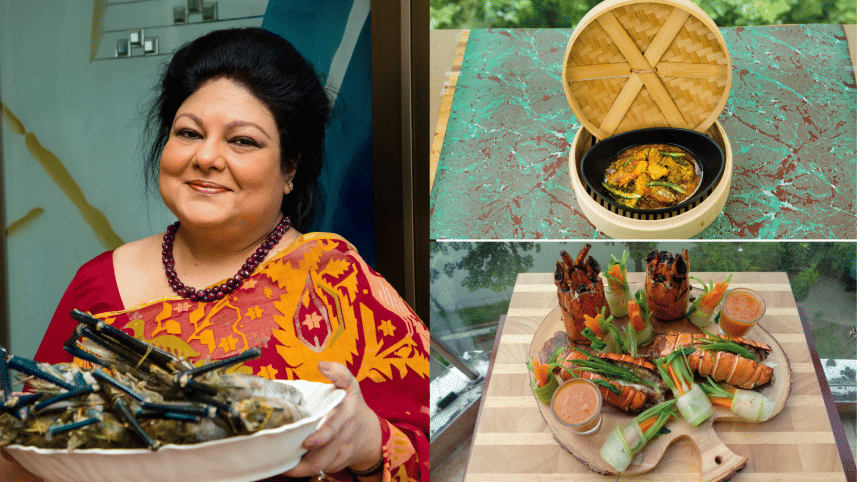
When you hear the phrase "fusion food," your mind might wander to avocado sushi or kimchi tacos. But in the hands of Shaheda Yesmin, fusion is not a gimmick — it's a carefully considered act of cultural conversation. Her debut cookbook, "Life on a Plate" is not just a collection of recipes, it's a manual for reimagining what it means to preserve tradition while responding to the hunger of a global palate.
That said, Yesmin does not believe in blindly guarding tradition.
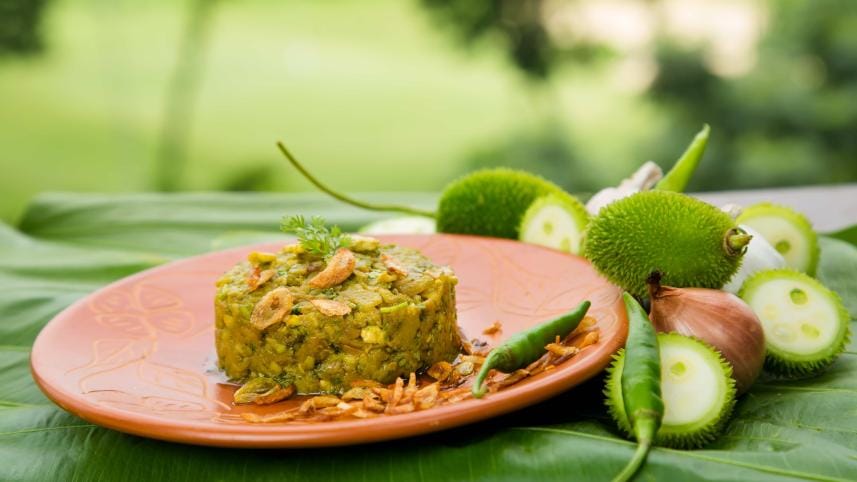
"It is possible to preserve the basic elements of traditional Bangladeshi dishes without compromising the basics beyond certain limits," she says. And in her kitchen, that philosophy translates into subtle, thoughtful adjustments rather than wholesale reinvention.
Her take on Mera Pitha, a traditional Sylheti rice flour cake, for example, incorporates Dhaka's iconic cottage cheese — a quiet regional handshake between two culinary cultures. Similarly, she transforms Morog Musallam by replacing the chicken with a deboned pigeon stuffed with rice, showing how a small shift in protein can elevate a familiar dish into something new without discarding its core.
But what makes Life on a Plate stand out is not its modernity — it's the memory. The recipes are stitched together with family, nostalgia, and love. One of the most intimate examples is Daddy's Favourite Lamb Shank, a dish dedicated to her father. She does not just replicate his favourite mutton preparation; she expands on it, enriching the flavour with Worcestershire sauce and red grape juice. It's a subtle nod to how personal taste and collective memory can intersect at the dinner table.
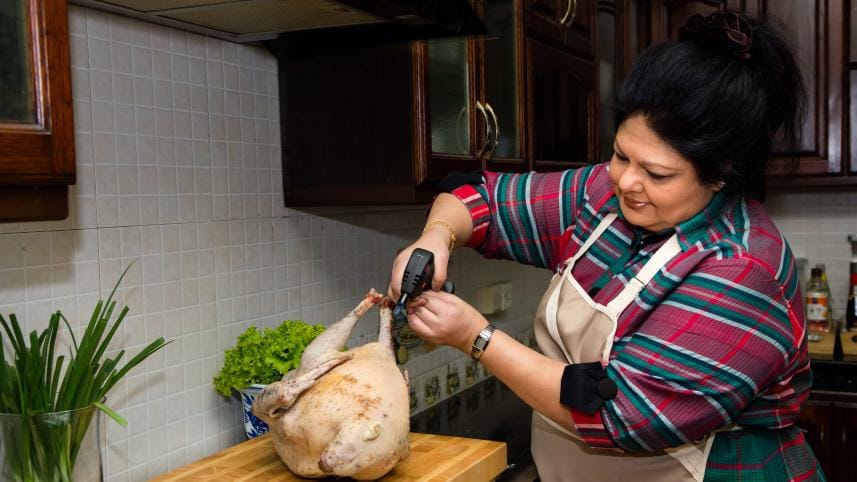
In a market where cookbooks often feel like glossy objects of aspiration, Yesmin's work reads more like a dialogue with her past, her land, and her audience. Her approach to fusion is not about diluting identity; it's about placing Bangladeshi flavours into a global narrative.
"The main principle," she explains, "Was presenting Bangladeshi cuisine to the outside world to meet the global diversity of palates. I had to preserve the fundamentals of our cuisine and at the same time, create permutations and combinations that would suit the diversity."
This balancing act is nowhere more evident than in her chapter on vegetarian food — a space often neglected in traditional, meat-heavy Bangladeshi menus. But for Yesmin, plant-based dishes are more than just dietary choices; they're ecological and ethical statements.
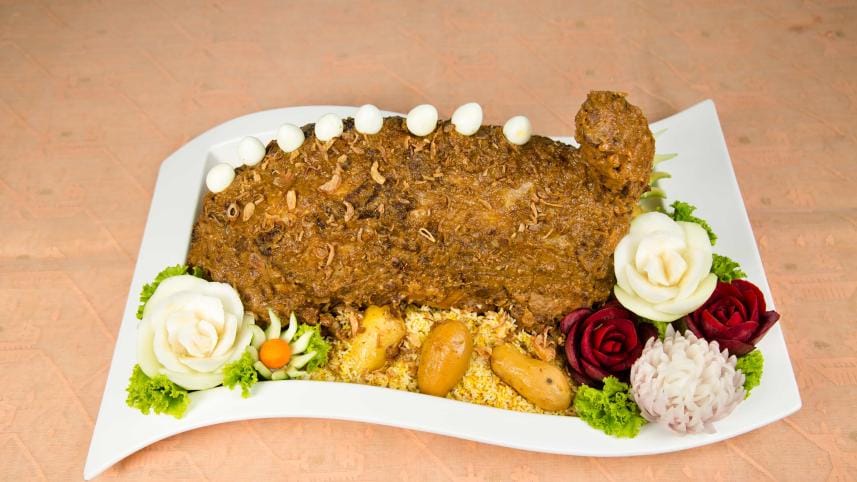
"At a time when our natural environment is facing an existential threat, it is heartening to note that plant-based eating is slowly gaining popularity amongst the new generation," she reflects. In her home, jackfruit isn't just a fruit, it's the main ingredient in her homemade kababs.
Her salads and bhartas are crafted not only for taste but with ingredients from her own kitchen garden. It's food that starts with dirt under your nails and ends in a dish that tastes like home.
Recognition came when Yesmin was named Country President by the World Association of Master Chefs, a title that validates her journey.
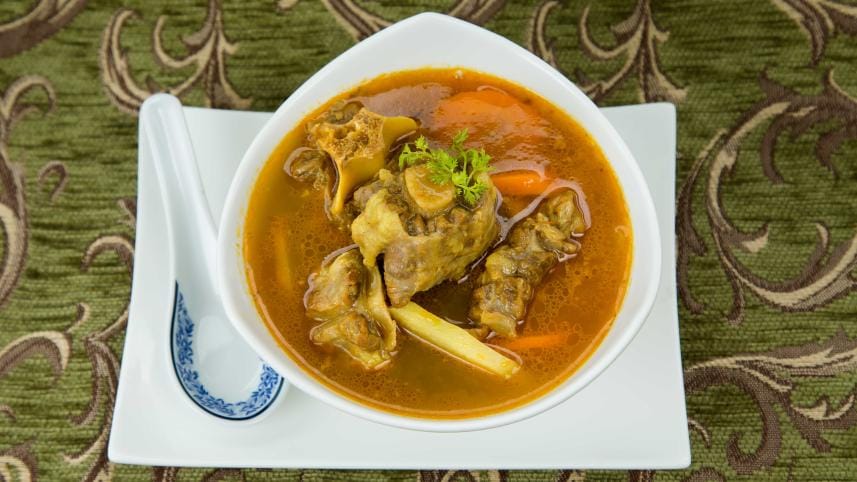
"It is undoubtedly a great sense of satisfaction that my humble efforts have found such recognition," she remarks with characteristic modesty. But the award is more than symbolic. It's a nudge to keep going, to keep telling Bangladesh's culinary story in bold, unexpected ways.
As for what comes next, she's not in a hurry. "It has taken me five years to bring Life on a Plate into the public domain. I do not wish to rule out working on another book, maybe some time down the road," she admits. For now, her focus is on nurturing what she's already seeded —recipes, relationships, and a reinvention of the Bangladeshi culinary identity.
Shaheda Yesmin's cookbook may sit neatly on a kitchen shelf, but its pages carry the weight of years of practice, experimentation, and heritage. In a world overwhelmed by culinary trends and clickbait food hacks, Life on a Plate invites us to slow down and ask: What are we really tasting when we eat? And whose stories are we carrying forward?
In Yesmin's world, a plate is not just a place for food — it's a stage for history, memory, and the quiet evolution of culture.
Photo: Courtesy



 For all latest news, follow The Daily Star's Google News channel.
For all latest news, follow The Daily Star's Google News channel.
Comments